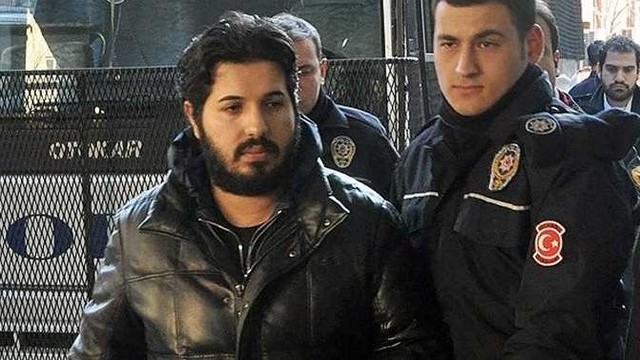October 14, 2016

Reza Zarrab’s lawyers have asked a US federal court to dismiss the sanctions violations charges against him because he is not a US citizen and didn’t make any transactions in the United States.
Zarrab, 34, has hired 15 lawyers who appeared in court last week to try to stop the case from going forward to trial next year.
Two of the 15 told Judge Richard Berman the case should be dismissed.
“The sanction laws are designed to operate on US citizens and transactions that are from the United States,” argued attorney Paul Clement, a former US solicitor general.
Readers of the Iran Times will have noted over the years that many of those tried and convicted of sanctions violations have not been American citizens. While most of those convicted have operated inside the United States, a few have been extradited from foreign countries where they lived and operated. One man operated only in Iran, but was fooled by US investigators into traveling to the Republic of Georgia, where he was arrested and extradited to the United States.
In those cases, the foreign-based suspects were seeking to buy US military or nuclear equipment and move it from the United States through third countries to Iran. Zarrab was not trying to move any American goods, however, and that is the nub of the argument.
The government replied that the law applies to anyone, US citizen or otherwise, who moves funds in violations of sanctions laws through the US financial system.
Assistant US Attorney Michael Lockard said, “The statute, in a very clear and unambiguous way, describes the scope of what it does. Foreign nationals who violate [the statute] can be criminally charged.”
Legal experts say Zarrab’s prosecution is unusual. In this case, prosecutors accuse Zarrab of causing the export of “financial services” from the US. His lawyers argue that payments originating overseas that are cleared by a US bank don’t count as a US export.
Under the sanctions law used to charge Zarrab, a criminal violation only occurs when there is an illegal “export” of something from the United States.
Zarrab is a dual national of Iran, where he was born, and Turkey where he has lived most of his life and operated his businesses.
He arrived in the courtroom wearing a blue prison uniform. He has been confined in the Manhattan detention center since March. He listened to the proceedings through a Turkish interpreter.
The significance of the case was underscored by the fact that US attorney Preet Bharara attended the hearing personally, sitting in the audience section while his assistants argued the case.
Other of Zarrab’s lawyers argued that the US government illegally gained access to Zarrab’s iPhone and computer when he was arrested at the Miami airport on arriving in the US.
The defense apparently believes that much of the evidence against Zarrab was obtained from the phone and computer and they want to stop that evidence from being presented in court.
Lockard responded to the cellphone argument by saying it was a “perfectly legitimate” practice by US Customs agents at airports to request passcodes. He said it enables agents, for example, to know if somebody has an Islamic State flag as a screensaver.
He said it happens regularly, “in the same way if you’re carrying locked luggage, you might be asked for the keys to your luggage.”
Defense attorney Ben Brafman disputed the claim that it was common practice and said Judge Berman should hold a hearing and have government agents testify about common practices and how the arrest unfolded for Zarrab.
“I think Mr. Lockard is dead wrong,” Brafman said. “I think the facts here scream out for suppression [of the evidence in the phone and computer].”
Berman did not immediately rule after hearing the lawyers. It may be a few weeks before he decides.
The case is being closely followed in Turkey because Zarrab was earlier implicated there in bribes allegedly paid to three cabinet ministers to clear the route for his transactions on behalf of Iran. Turkish Prime Minister Recep Tayyip Erdogan killed that case by firing and transferring judges and investigators.
Last week, the Iran Times reported that Erdogan complained that the case against Zarrab in New York was a political case aimed at damaging him. As evidence, he said the indictment against Zarrab cites Erdogan’s wife.
The Iran Times has now re-checked the 21-page indictment filed with the court and it makes no mention of Erdogan or his wife, or any Turkish officials.
